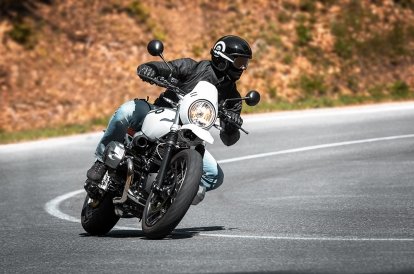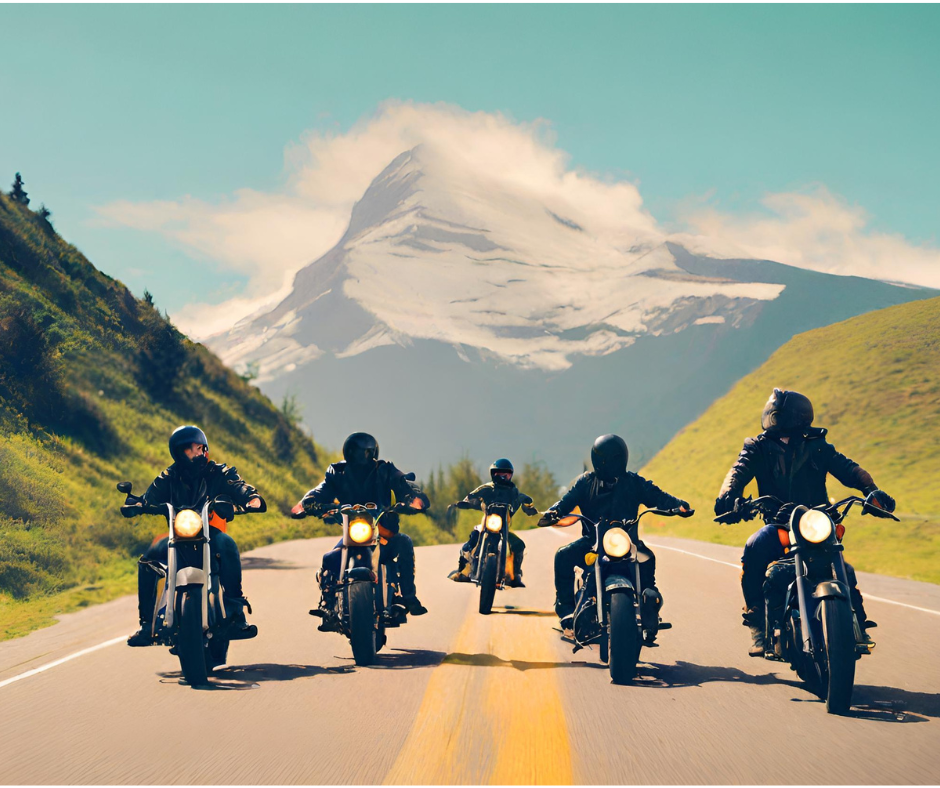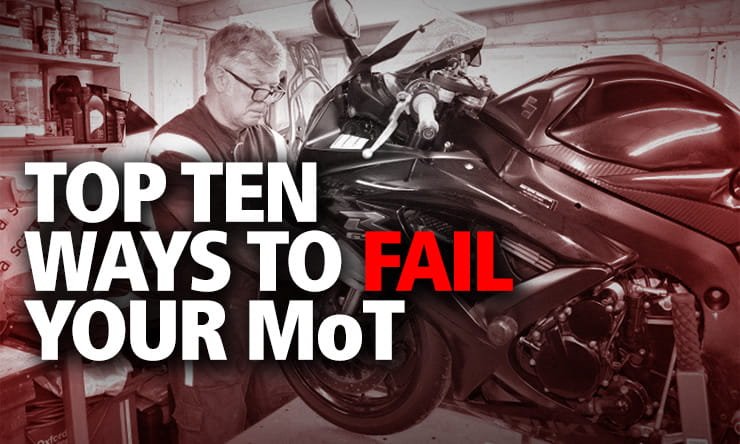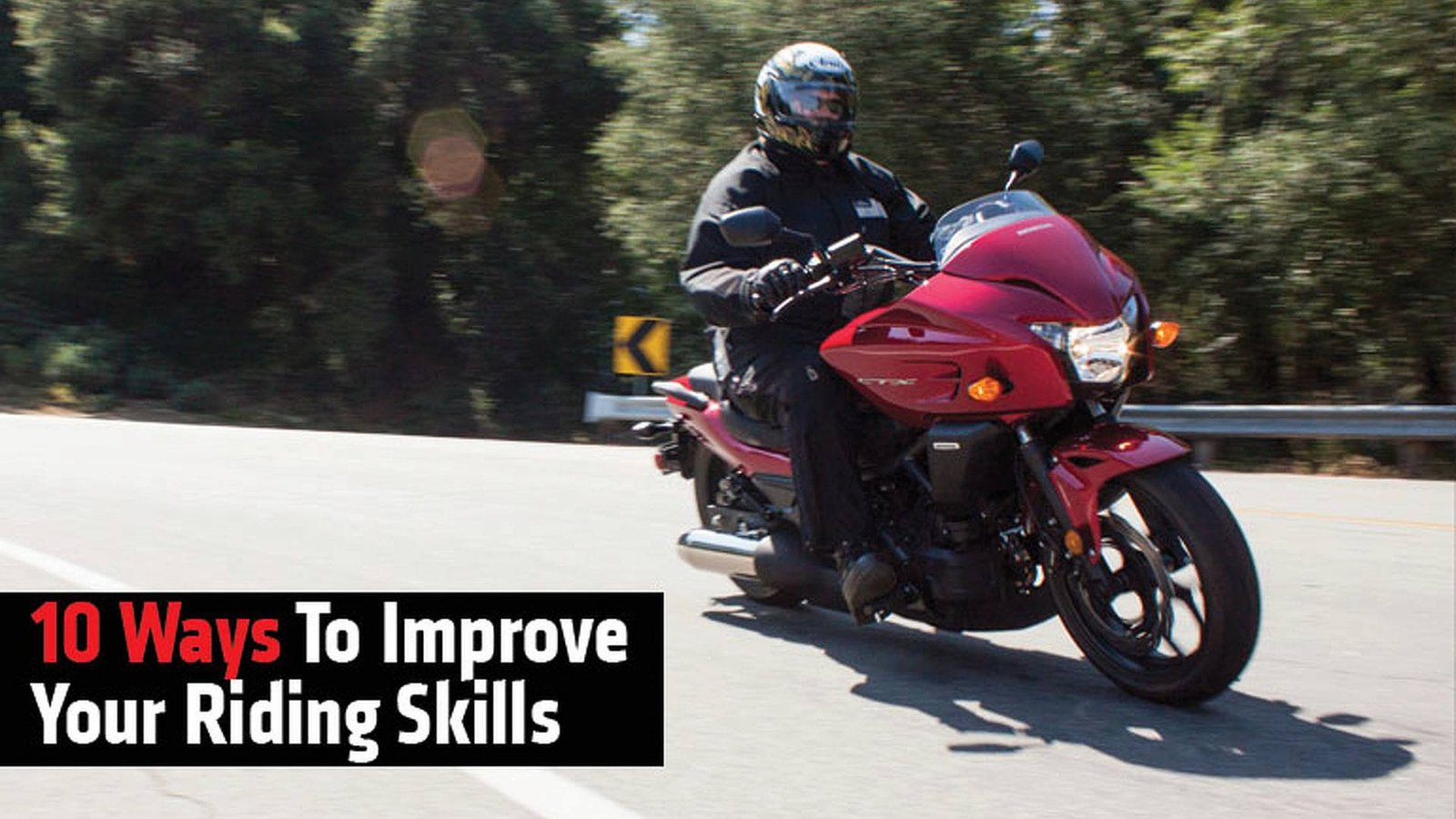Riding a motorcycle carries inherent risks, but many find the reward in its exhilaration and freedom. Personal risk tolerance and safety practices significantly influence the experience’s worth.
Motorcycle riding sparks a sense of freedom and adventure unmatched by other modes of transportation. The rush of the wind, the nimbleness in traffic, and the close connection with the road lure countless enthusiasts. Yet, this thrill is not without its dangers.
The risk of accidents, exposure to the elements, and the requirement for heightened awareness can’t be ignored. Motorcyclists must weigh these risks against the joy of riding. Safety gear and responsible riding habits greatly mitigate these concerns, making the decision to ride a deeply personal one. Thus, while the risks are real, the merits of motorcycle riding remain compelling to those who prioritize thrill and the art of biking.

Credit: www.ronitbaras.com
Table of Contents
The Thrill Of Two Wheels
Riding a motorcycle offers an adventure unlike any other. It’s not just about getting from point A to point B. It’s about the journey, the freedom, and the connection to the world around you. For many, motorcycles symbolize a sense of liberation, giving riders a unique way to experience their surroundings.
Sensory Appeal Of Motorcycling
The sensory appeal of motorcycling is unmatched. Feel the wind as you zoom through the air. Hear the roar of the engine. Smell the asphalt and nature as you pass by. See landscapes unfold before you. Every sense comes alive on a motorcycle. Here are some highlights:
- Visual: Panoramic views unobstructed by car frames.
- Auditory: The bike’s engine and environment sounds blend harmoniously.
- Olfactory: Scents of the open road, from rain-soaked earth to blooming flowers.
- Tactile: The vibration of the bike and the feeling of the throttle in your hand.
- Thermal: Sun on your skin, breeze cooling you down.
Psychological Benefits Of Riding
Riding isn’t just physically invigorating; it’s mentally stimulating too. This activity offers psychological benefits like stress reduction and enhanced focus. Riders often speak of the ‘zone,’ a state of flow where worries fade away, and the mind is fully engaged with the body. Motorcycling can:
| Benefit | Description |
|---|---|
| Mindfulness | Encourages living in the moment and being acutely aware of your surroundings. |
| Stress Relief | Releases tension as you focus on the road and the ride. |
| Community Connection | Promotes social interaction through rider groups and events. |
| Confidence | Boosts self-esteem as you conquer new routes and challenges. |
| Adventure | Sparks a sense of exploration and discovery. |
Risks On The Road
Imagine the thrill of the wind in your hair as you ride down the highway. It sounds inviting. Yet, riding a motorcycle involves facing risks every time you hit the road. Before deciding if the exhilaration is worth it, let’s look closely at the potential dangers.
Statistical Dangers For Motorcyclists
Riding a motorcycle can be riskier than driving a car. Data shows this. The figures are clear and striking. Here are some numbers that highlight these risks:
| Statistic | Details |
|---|---|
| Death rate | Motorcyclists are 29 times more likely to die in a crash than car passengers. |
| Helmet use | Wearing a helmet reduces the risk of death by 37%. |
| Injury rate | Motorcyclist injuries occur in 98% of multiple-vehicle crashes. |
Common Causes Of Motorcycle Accidents
Many motorcycle accidents stem from common scenarios. Knowing these can help riders stay safer. Some common causes include:
- Left-turn accidents: A car turns left in front of a motorcycle, not seeing it.
- Speeding: Excess speed can lead to loss of control.
- Lane splitting: Riding between two lanes is risky, especially if cars aren’t aware.
- Alcohol use: It’s a factor in many vehicle crashes, including motorcycles.
- Road hazards: Potholes, slick surfaces, and debris affect motorcycles more than cars.
Safety Gear And Innovations
For many thrill-seekers, the open road calls with a siren’s song, and the answer comes in the form of a motorcycle. Riding a motorcycle marries freedom with high speeds, but it’s not without its risks. Thankfully, advancements in safety gear and innovations continue to develop, offering riders better protection than ever before. Let’s rev up and explore how modern technology is changing the game for motorcyclists.
Advancements In Protective Equipment
The leap in protective gear for motorcyclists in recent years is remarkable. Manufacturers now deliver equipment that not only protects but also enhances the riding experience. Here’s a rundown of the key advancements:
- Smart Helmets: Feature built-in cameras and head-up displays.
- Airbag Jackets: Inflate upon impact to cushion the body.
- D30 Armor: Soft and flexible material that hardens on impact.
- Gloves with Knuckle Protection: Guard against cuts and abrasions.
- Boots with Ankle Support: Reduce the risk of foot injuries.
Impact Of Technology On Rider Safety
Technology doesn’t just play a role—it’s a game-changer for rider safety. Let’s break down how tech is making the roads safer:
| Technology | Impact |
|---|---|
| Anti-lock Braking Systems (ABS) | Prevents wheel lock-up during braking. |
| Traction Control | Mitigates wheel spin during acceleration. |
| Adaptive Headlights | Improves visibility on curvy roads. |
| Ride-By-Wire Throttles | Offers smoother and more precise throttle control. |
| Vehicle-to-Vehicle Communication | Enables bikes to communicate with other vehicles to prevent accidents. |
Innovation in motorcycle technology and gear broadens the horizon for safer riding. With continuous improvements, riders gain valuable tools to protect themselves, making the joy of motorcycling an increasingly secure adventure.

Credit: www.mcrider.com
Rider Training And Skills
Motorcycle riding comes with thrills and risks. Skillful riding and thorough training trim down these risks. Proper training could mean the difference between a close call and a dire situation. Riders equip themselves with crucial techniques that ensure safety on the road. Let’s explore how professional training benefits riders and the mastery of defensive riding.
Benefits Of Professional Motorcycle Training
- Develops strong fundamentals: Training introduces riders to the essentials of motorcycle control.
- Teaches road rules: Riders learn traffic laws specific to motorcycles.
- Provides hands-on experience: Real-world scenarios during training prepare riders for actual riding conditions.
- Boosts confidence: Mastery of riding skills makes for a more confident rider.
- Reduces accident risk: Knowledgeable riders are less likely to make costly mistakes.
Mastering Defensive Riding Techniques
| Skill | Benefit |
|---|---|
| Situational Awareness | Foreseeing potential hazards. |
| Braking Proficiency | Control in emergency stops. |
| Collision Avoidance | Maneuvering to prevent crashes. |
| Positioning for Visibility | Maintaining a space cushion around the bike. |
Defensive riding is a proactive approach to anticipate and react to potential dangers on the road. It demands constant attention and the ability to predict other drivers’ actions. Defensive techniques are not innate; they come from repetitive practice and guidance from seasoned professionals.
Legal Protections For Motorcyclists
Understanding the legal protections in place can quell some of the fears associated with motorcycle riding. Laws exist to safeguard riders. Knowing them is crucial.
Motorcycle Laws And Insurance Requirements
Gearing up with the right knowledge about motorcycle laws is as important as strapping on a helmet. Each state in the U.S. has specific legal requirements for motorcyclists. These typically cover:
- License endorsements specific to motorcycle operation
- Helmet laws that may vary by age and state
- Equipment regulations, including reflectors and lights
- Mandatory insurance coverage levels for bodily injury and property damage
Carrying proof of insurance is mandatory. It protects riders against financial loss after an accident.
Rights And Representation After An Accident
In the unfortunate event of a crash, knowing your rights is vital. Here’s what motorcyclists should remember:
- You have the right to file an insurance claim for damages.
- Legal representation can guide you through the process.
- Always report the accident to the police and get a copy of the report.
- Document evidence and gather witness accounts. This information is valuable.
Remember, the goal is to ensure fair treatment and compensation. A lawyer specializing in motorcycle law can help you understand and navigate the complexities.

Credit: www.motorbikeclaims.org.uk
Economic Considerations
When deciding whether to ride a motorcycle, the price tag on the bike itself is only part of the story. Fuel efficiency, insurance costs, and long-term maintenance all play a critical role in assessing the total economic impact. Let’s shift gears and evaluate the real cost behind the thrill of riding on two wheels.
The Cost-effectiveness Of Motorcycling
Bikers often point to potential savings as a big plus. Motorcycles have impressive fuel economy, which can mean lower gas bills each month. They also require smaller amounts of oil and fewer filters during maintenance compared to cars. But initial costs like safety gear, specialty clothing, and advanced riding courses also need consideration. Compare these factors to understand the full picture:
- Fuel savings: Motorcycles can achieve 40-70 mpg, reducing travel expenses.
- Lower maintenance: Routine upkeep can be less pricey than four-wheeled counterparts.
- Initial costs: Gear and training may add upfront costs, but they are vital for safe riding.
Long-term Financial Impact Of Riding
Think long-term. Depreciation rates for motorcycles differ from cars. Certain bikes retain value extremely well. Unexpected costs such as repairs after accidents could be hefty, and insurance premiums might rise. Factor in these long-term considerations:
| Aspect | Impact |
|---|---|
| Depreciation | Motorcycles may retain value longer, especially well-kept, classic models. |
| Accident Repairs | Costs could be significant based on severity, affecting financial planning. |
| Insurance | Depends on rider’s age, experience, and bike model; may increase with claims. |
Riding a motorcycle indeed holds a sense of economic allure. But, a true assessment extends beyond the initial purchase. It includes the full spectrum of ownership, from day-to-day expenditures to long-haul costs. Weigh these carefully against the joy and freedom that motorcycling claims to offer.
Community And Culture
Riding a motorcycle bonds riders with a unique blend of community and culture. Unlike any other mode of transport, it offers a sense of belonging and identity. This culture isn’t just about the machines; it’s a lifestyle, where every ride is a new adventure and every rider could be a new friend. The risk often brings riders closer, creating a strong, supportive community.
Social Aspects Of The Motorcycle Community
The motorcycle community thrives on camaraderie and shared passion. Events like bike rallies, charity rides, and club meetings form the backbone of this social network. Here are some highlights:
- Rally meetups where stories and tips are exchanged
- Group rides that foster trust and cooperation
- Charity events that unite riders for good causes
Being part of this community also means always having a helping hand. Whether a rider needs mechanical help or just some route advice, the sense of solidarity is palpable.
Influence Of Motorcycling On Lifestyle
Embracing the motorcycling lifestyle can influence daily life in substantial ways. Riders often find:
| Aspect | Influence |
|---|---|
| Attire | Leather jackets and boots become a style staple |
| Travel | Road trips take priority over traditional vacations |
| Personal Growth | Confidence and a strong sense of freedom develop |
The motorcycle isn’t simply a vehicle; it’s part of a rider’s identity. It symbolizes a pursuit of freedom and a commitment to living life on one’s own terms. Practicalities aside, the motorcycle culture can shape the way riders view the world, fueling a relentless hunger for the open road.
Making The Personal Decision
Making the personal decision to ride a motorcycle involves more than the thrill of the open road. It requires serious thought about the risks involved.
Evaluating Individual Risk Tolerance
Riding a motorcycle is not for everyone. Before hopping on, riders should assess their comfort with potential dangers. Reflect on your abilities and consider your reaction to high-stress situations.
- Experience Level: New riders face higher risks.
- Health Condition: Good reflexes and clear vision are crucial.
- Road Awareness: Understanding road risks is essential.
Knowing yourself helps gauge if the ride matches your risk level.
Balancing Passion And Prudence
Passion for riding should balance with safety measures. Enthusiasts must not compromise on protective gear, and staying updated with road laws is a must. Attending advanced riding courses can also help improve skills.
| Passion Element | Prudence Measure |
|---|---|
| Love for Speed | Invest in ABS brakes and traction control |
| Exploring Roads | Always check weather and traffic conditions |
| Group Rides | Communication systems for safety |
Riders need to respect the balance to stay safe on the streets.
Frequently Asked Questions
Are Motorcycles Worth The Danger?
Motorcycles offer thrilling experiences but come with higher risk factors. Proper training and safety gear can mitigate dangers. Personal risk tolerance and responsible riding are key to determining their worthiness.
Is Riding A Motorcycle High Risk?
Riding a motorcycle does carry a higher risk compared to driving a car due to less crash protection and greater exposure to road hazards. Safety gear and defensive driving can mitigate risks.
What Is The Survival Rate Of A Motorcycle?
The term “survival rate of a motorcycle” doesn’t apply to inanimate objects like motorcycles. Survival rates typically refer to living organisms, not vehicles. Instead, one might discuss the durability or lifespan of a motorcycle, which varies by model, maintenance, and usage.
What Is The Greatest Risk To You As A Motorcyclist?
The greatest risk to motorcyclists is being involved in a traffic accident, often due to a car driver’s lack of visibility or awareness.
Bottom Line
Motorcycle adventures lure countless enthusiasts with the promise of freedom and excitement. Yet, safety concerns can’t be ignored. Assessing one’s riding skill and commitment to road safety is crucial. Ultimately, with the right precautions and respect for the ride, motorcycling can be a thrilling, rewarding experience.
Stay informed, ride responsibly, and the road is yours to enjoy.




Leave a Reply